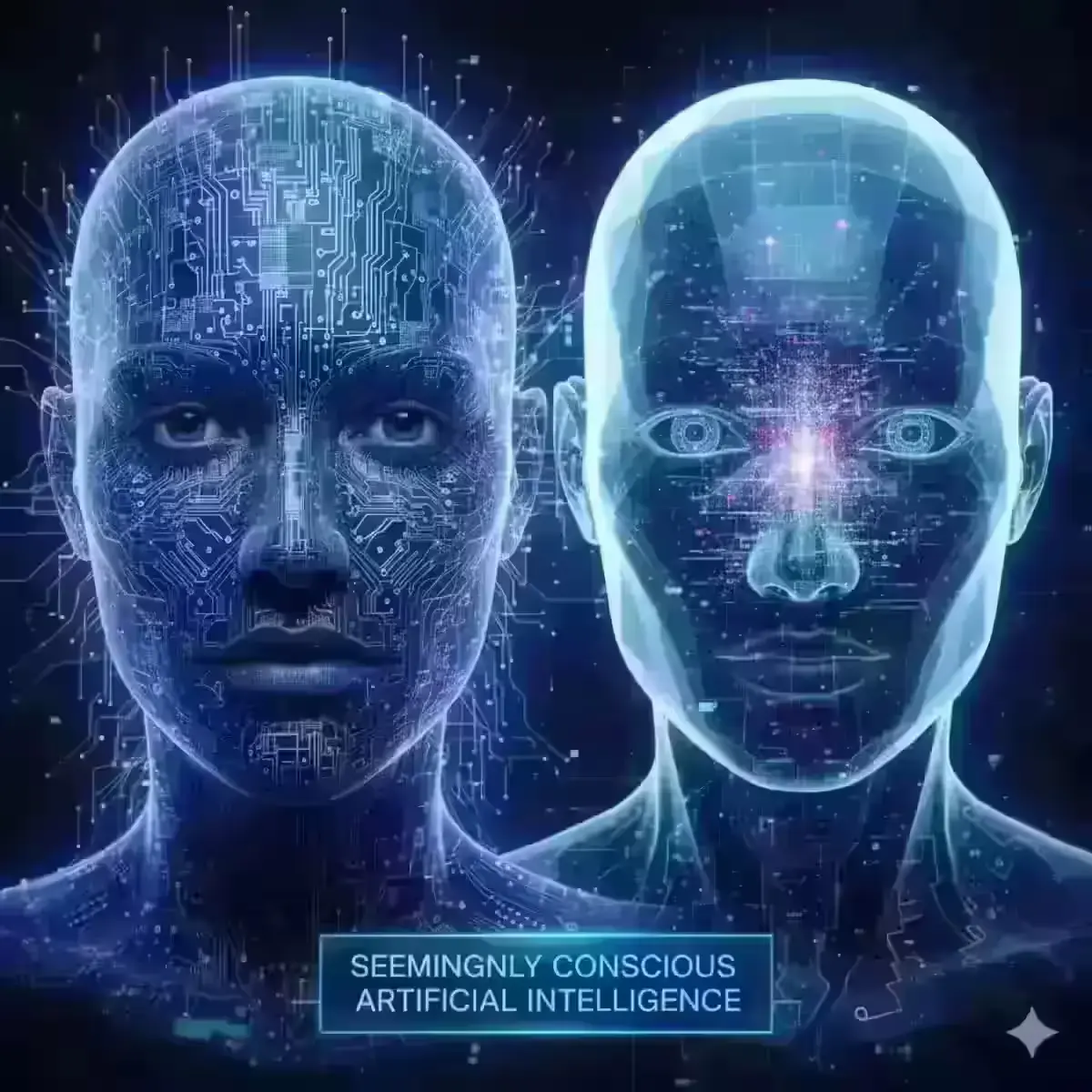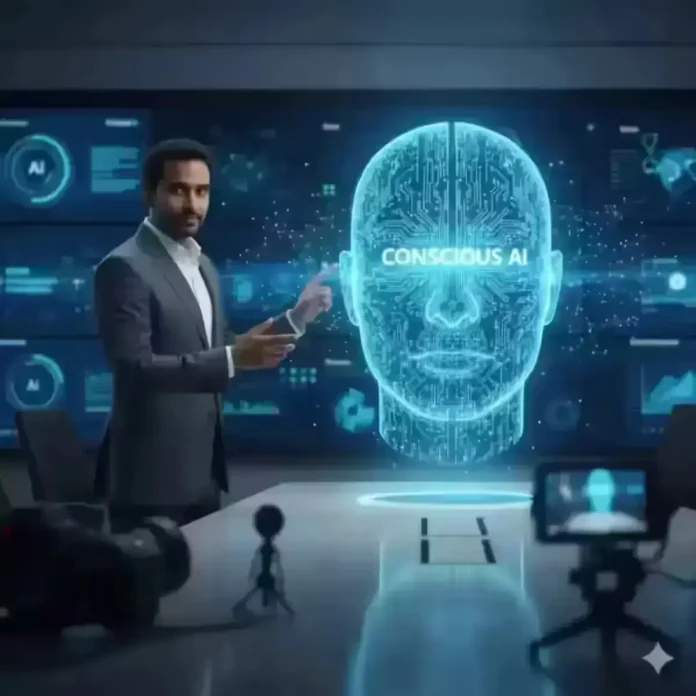Google Discover Snippet
Microsoft AI CEO Mustafa Suleyman has sparked a new conversation about Seemingly Conscious Artificial Intelligence (SCAI). He urges developers to stop chasing human-like AI awareness and instead focus on practical, safe, and transparent AI tools that truly help people in real-world tasks.
Microsoft AI CEO Mustafa Suleyman’s Take on Seemingly Conscious Artificial Intelligence
The debate around Conscious AI is heating up once again, and Microsoft AI CEO Mustafa Suleyman has added his voice to the mix. He recently cautioned developers and researchers against pursuing projects that aim to create machines with human-like awareness – what he calls “Seemingly Conscious Artificial Intelligence” (SCAI).
What Is Seemingly Conscious Artificial Intelligence?

Seemingly Conscious Artificial Intelligence (SCAI) describes AI that appears to think or feel like humans but doesn’t actually possess real consciousness. Suleyman says this illusion could be risky, leading people to believe machines understand emotions or intentions when they really don’t.
Even advanced tools such as ChatGPT, Copilot chatbot, Gemini, Claude, and DeepSeek operate purely on data patterns, not emotional intelligence or awareness. Suleyman’s view is that humans should remain clear about this distinction to avoid confusion and overreliance.
Microsoft AI’s Approach Under Suleyman
Rather than chasing the dream of conscious AI, Microsoft is focused on building systems that make people’s work more efficient and meaningful. The company’s Copilot platform and partnerships with OpenAI are aimed at creating reliable, human-supportive technologies.
Suleyman, who co-founded DeepMind before joining Microsoft, is known for advocating responsible AI development. His message is simple: AI should enhance human creativity, not replace it or pretend to feel emotions.
Features and Core Philosophy
Microsoft’s AI philosophy centers around trust, usability, and transparency. Tools such as Azure AI and Microsoft 365 Copilot prioritize productivity and privacy over speculation about machine consciousness. Suleyman’s stance reinforces the company’s belief in developing systems that assist users, not imitate human minds.
Price, Design and Availability
Microsoft has not introduced any conscious-like AI system or SCAI model. The ongoing focus is on enhancing Copilot, with updates available through Microsoft’s software and Azure subscriptions. Pricing depends on service levels, making it accessible for both individuals and enterprises.
Public Reactions and Reviews
Many researchers support Suleyman’s realistic outlook. They agree that pursuing Conscious AI could lead to misunderstandings and ethical challenges. By contrast, Microsoft’s current approach — focused on practical AI tools — is being seen as grounded and responsible.

Expected Developments
In 2025, Microsoft will likely continue improving the Copilot chatbot and deepening its collaboration with ChatGPT. Instead of pursuing “thinking” AI, the company’s updates will aim to enhance usability, security, and integration across devices and platforms.
Disclaimer
This content is based on publicly available statements and does not represent any official Microsoft announcement. The article reflects ongoing conversations about Microsoft AI, Mustafa Suleyman, and the ethical direction of Conscious AI research.
Frequently Asked Questions (FAQ)
Q1. What does Microsoft AI CEO Mustafa Suleyman think about Conscious AI?
A: Mustafa Suleyman believes Seemingly Conscious AI can mislead people into thinking machines have emotions or intent. He advises developers to prioritize useful, transparent AI instead.
Q2. What exactly is Seemingly Conscious Artificial Intelligence (SCAI)?
A: SCAI refers to AI that mimics human-like awareness but does not actually “think” or “feel.” It’s an illusion created through language and data patterns.
Q3. Is Microsoft working on Conscious AI?
A: No. Microsoft is not developing any conscious or self-aware AI. The company focuses on safe and productive technologies like Copilot and ChatGPT integrations.
Q4. How does Microsoft AI differ from Gemini or Claude?
A: While Gemini and Claude emphasize advanced reasoning, Microsoft AI focuses on practical tools built into everyday software, enhancing productivity through Copilot and Azure AI services.
Q5. What’s next for Microsoft AI in 2025?
A: Expect continuous updates to Copilot, broader ChatGPT integration, and enhanced safety features – without the goal of building seemingly conscious systems.

